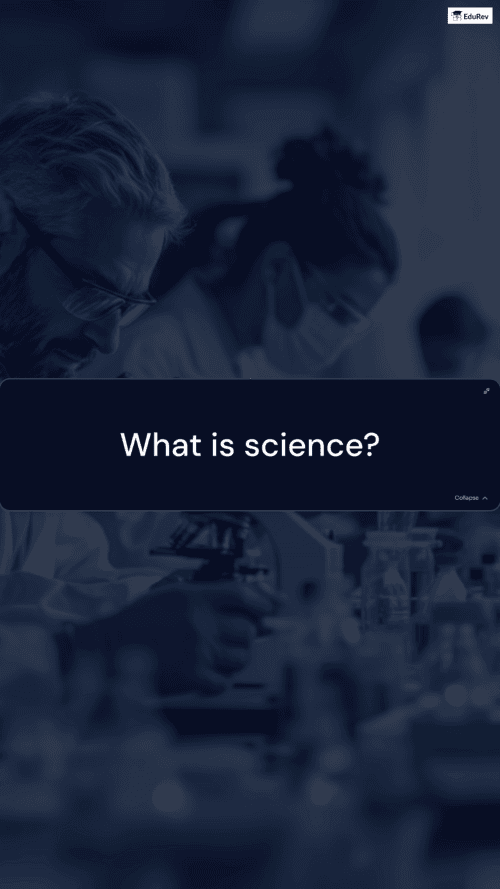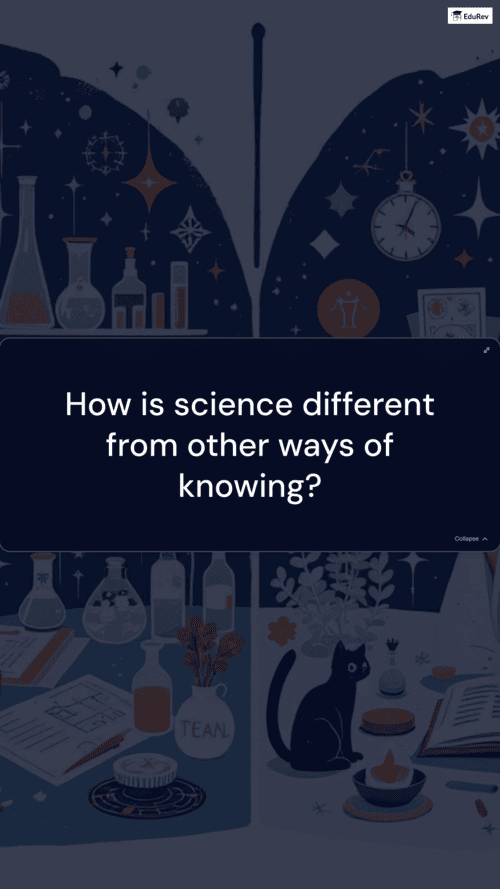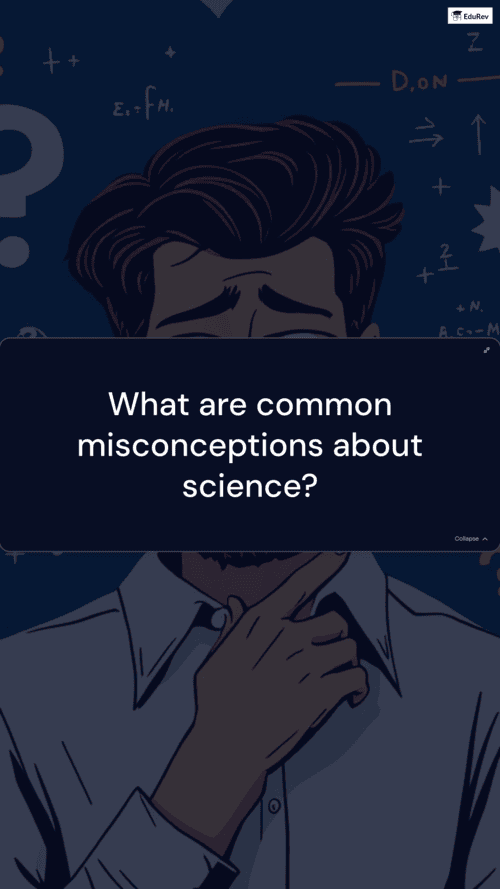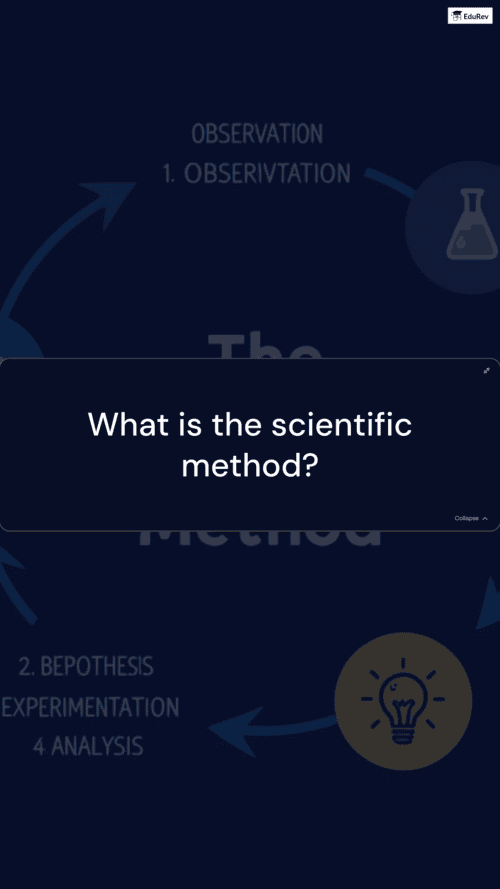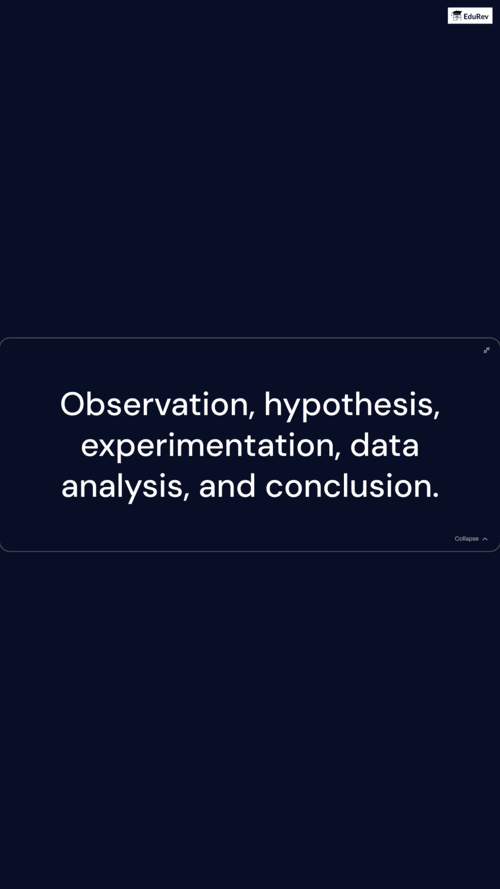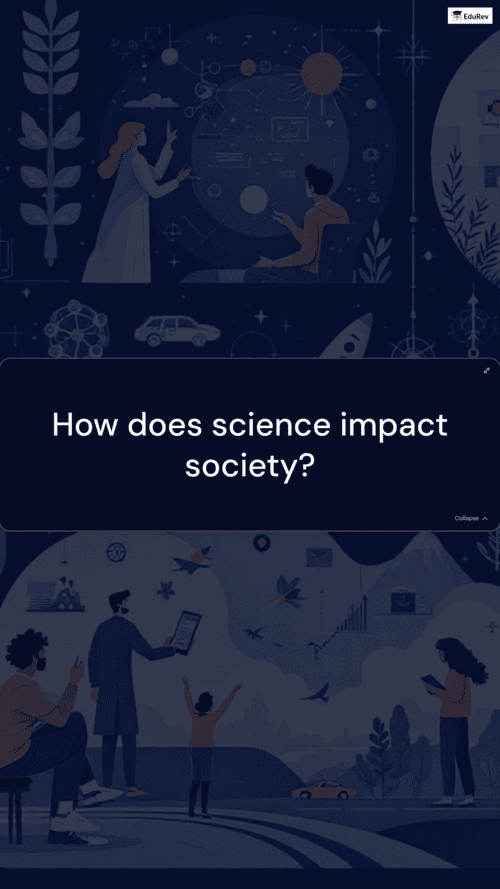 Unlock all Flashcards with EduRev Infinity Plan Starting from @ ₹99 only
|
CTET & State TET Exam > Science & Pedagogy Paper 2 for CTET & TET Exams > Flashcards: Nature & Structure of Sciences
|
35 videos|145 docs|32 tests
|
FAQs on Flashcards: Nature & Structure of Sciences Flashcard - Science & Pedagogy Paper 2 for CTET & TET Exams - CTET & State TET
| 1. What is the nature of science and how does it differ from other forms of knowledge? |  |
Ans. The nature of science is characterized by systematic observation, experimentation, and the formulation of theories based on empirical evidence. Unlike other forms of knowledge, such as philosophy or religion, science relies on testable and falsifiable hypotheses and aims to provide explanations for natural phenomena through rigorous methodologies.
| 2. How is the scientific method structured and what are its key components? |  |
Ans. The scientific method is structured in a series of steps that often include observation, hypothesis formulation, experimentation, data collection, analysis, and conclusion. Key components include making observations, asking questions, forming hypotheses, conducting experiments to test those hypotheses, and drawing conclusions based on the results.
| 3. Why is peer review important in the scientific process? |  |
Ans. Peer review is crucial as it ensures the credibility and reliability of scientific research. It involves the evaluation of a study by other experts in the field before publication, which helps identify any errors, biases, or methodological flaws. This process enhances the quality of scientific literature and fosters trust in scientific findings.
| 4. What role do theories and laws play in science, and how are they different? |  |
Ans. Theories and laws serve different purposes in science. A scientific law describes a consistent and universal observation, often expressed mathematically (e.g., Newton's Law of Gravitation), while a theory provides an explanatory framework for understanding phenomena and can incorporate multiple laws and hypotheses (e.g., the Theory of Evolution). Theories can evolve as new evidence emerges, whereas laws are generally accepted as factual.
| 5. How does science contribute to society and everyday life? |  |
Ans. Science contributes to society by driving technological advancements, informing public policy, and improving health outcomes. Everyday applications of science can be seen in medicine, environmental protection, communication technologies, and more, ultimately enhancing quality of life and addressing global challenges.
Related Searches




